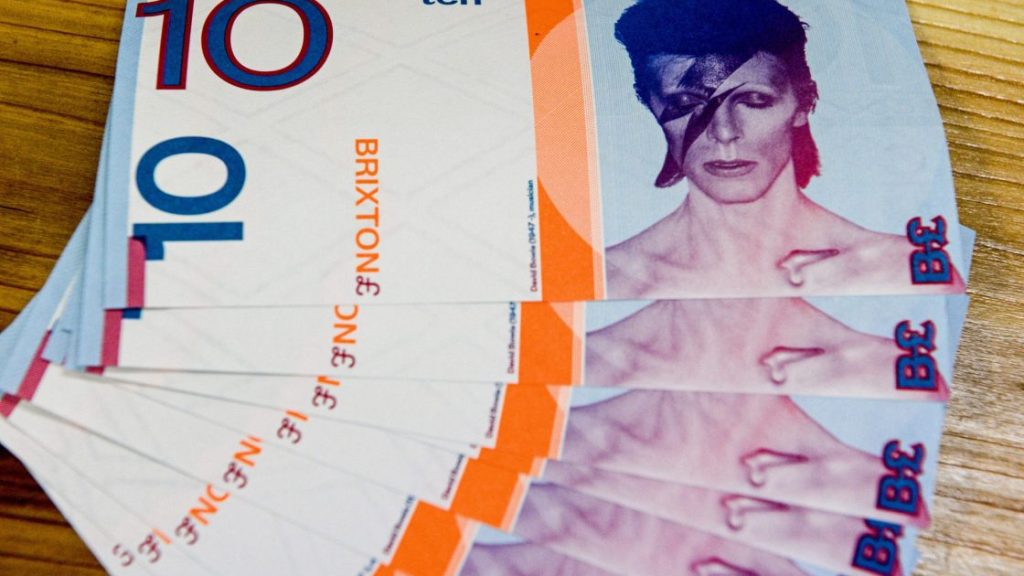
Will Blackstone kill my Band?
In this weekend’s Financial Times there was a short article covering the late stage negotiations of David Bowie’s estate to sell his song catalogue for a rumoured $200m. This astronomical price for the Starman’s corpus is just the latest in a long line of acquisitions by investment groups in A-List musicians’ work. Hipgnosis, part owned by Nile Rodgers, is perhaps the most high profile, but the list also includes listed funds like Round Hill’s as well as funds backed by major private equity groups. This increasing interest in music as an investment class also drove the successful spinning off this year of Universal Music Group by Vivendi, as well as the rocketing price of Nasdaq-listed Warner Music Group.
Bowie of course has ‘previous’ in this department with his ‘Bowie Bonds’ who partnered with Prudential to raise $55M of artist-backed debt in order to buy back recording masters from his ex-manager. The bonds tanked with the rise of Napster and the early days of piratical streaming, though despite a turbulent decade, the ten-year notes reached maturity and were redeemed in 2007. However, it’s the success of Napster’s streaming descendents such as Spotify and Tidal that have led to the renewed interest in song rights amongst the finance community, with heavyweight Blackstone and KKR stepping into the ring this year to take a piece of the steady returns that blue-chip music assets promise. As an investment idea it makes perfect sense; the dematerialised, post-industrial capitalist equivalent of pension funds buying blocks of rental properties for steady yields. New generations are increasingly less doctrinaire in their music tastes and their eclecticism as well as older cohort’s own nostalgia means legendary artists such as Bowie or Blondie hold an enduring appeal – and value. Once the IP is owned, there’s no incremental costs and a steady recurring revenue stream, as well as, for a small investment, a myriad of opportunities for further monetisation, through TV, advertising and media. And it’s not just the dead and retired that are cashing in, with recent heavyweights such as The Kaiser Chiefs and The Chainsmokers both having sold up to Hipgnosis.
Though there is something to be said (at least from their perspective) for musicians getting the chance to bring forward future – and posthumous – earnings into the here-and-now, as well as the chance to cash in when they believe their creative stock might be at its highest, this is a potentially dangerous deal that popular culture is cutting with high finance. Groups such as Blackstone are not getting into this business for their passion for the music and will be looking for the maximum return for their investment; though the passive income from streaming is the foundation, there are entire teams looking to sweat these assets as hard as they can. Adverts, movie soundtracks, streaming series themes… wherever they can place these top-tier artists, they will, generating what amounts to ‘money for nothing’ from recycling their greatest hits. And wherever they do, that’s money being taken out of the artistic economy to generate shareholder wealth, at the expense of the up-and-coming rapper that was being considered for that film or the new singer-songwriter who might have got to appear on that series. Why would you take a chance on that new soul-funk trio for your Vodafone advert when the nice people at KKR music are offering you a great deal on ‘Let’s Dance’ by David Bowie, along with a kickback from all attributable incremental streams whilst your ad is live?
These back-catalogue sales are great for the funds and those that invest in them and great for established (or faded) stars. But for the music business and creativity, they are bad news, sucking much needed dollars out of the ecosystem. So what’s to be done?
Fight Finance with Finance. The same way that challengers have disrupted entrenched incumbents before – by taking big bets on future successes. I believe that – Hamfatter aside – we need Angel Investors for the Arts, a sort of 21st century version of the renaissance patron, investing in up and coming bands that want (and not all perhaps do) to ‘crack’ the business. Most will fail – the same as many ‘normal’ seed investments, but that’s fine. And some will not. And the ones that do pay off, will pay for future investment in other bands, supporting the grass roots that would be otherwise mown down by these juggernaut investment vehicles.
Category: capitalism, culture, data